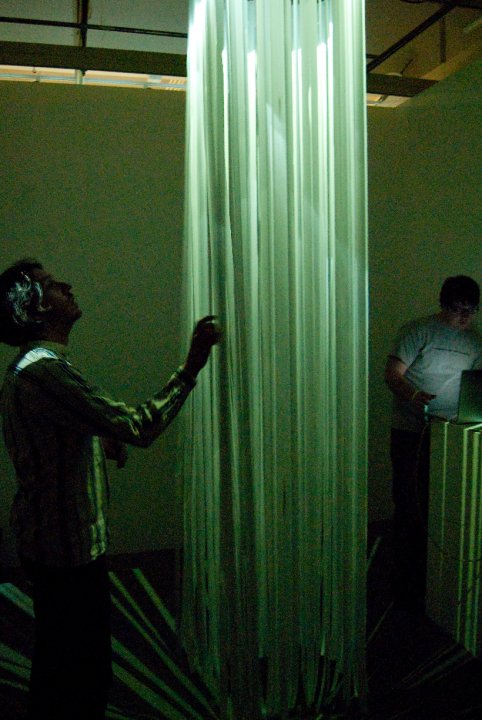
660 Lomita Dr.
Stanford CA 94305
The Stanford Center for Computer Research in Music and Acoustics (CCRMA) is a multi-disciplinary facility where composers and researchers work together using computer-based technology both as an artistic medium and as a research tool.
Pronouncing "CCRMA":
CCRMA is an acronym for the Center for Computer Research in Music and Acoustics it is pronounced "karma" (the first "c" is silent).
Areas of ongoing interest:
Composition, Applications Hardware, Applications Software, Synthesis Techniques and Algorithms, Physical Modeling, Music and Mobile Devices, Sensors, Real-Time Controllers, Signal Processing, Digital Recording and Editing, Psychoacoustics and Musical Acoustics, Perceptual Audio Coding, Music Information Retrieval, Audio Networking, Auditory Display of Multidimensional Data (Data Sonification), and Real-Time Applications.
The CCRMA community:
Administrative and technical staff, faculty, research associates, graduate research assistants, graduate and undergraduate students, visiting scholars, visiting researchers and composers, and industrial associates. Departments actively represented at CCRMA include Music, Electrical Engineering, Mechanical Engineering, Computer Science, Physics, Art, Drama, and Psychology.
Center activities:
Academic courses, seminars, small interest group meetings, summer workshops and colloquia. Concerts of computer music are presented several times each year, including exchange concerts with area computer music centers. In-house technical reports and recordings are available, and public demonstrations of ongoing work at CCRMA are held periodically.
Research results:
Are published and presented at professional meetings, international conferences and in established journals including the Computer Music Journal, Journal of the Audio Engineering Society, the Journal of the Acoustical Society of America, and various transactions of the Institute of Electrical and Electronic Engineers (IEEE). Compositions are presented in new music festivals and radio broadcasts throughout the world and have been recorded on cassette, LP, and compact disk.
CCRMA affiliation:
The Center for Computer Assisted Research in the Humanities (CCARH), also located at Stanford. CCARH conducts research on constructing computer databases for music, and on creating programs that allow researchers to access, analyze, print, and electronically perform the music. This focus is complementary to research at CCRMA in several ways.
Support for CCRMA:
The late Doreen B. Townsend, Walter Hewlett, the California Arts Council, the Ann and Gordon Getty Foundation, the Mellon Foundation, the National Endowment for the Arts, the National Science Foundation, the Rockefeller Foundation (for artists-in-residence), the System Development Foundation, Apple Computer, ATR Human Information Processing Research Labs, Aureal Semiconductor, Bio Control, Crystal Semiconductor, Digidesign, Dynacord, E-mu, Fast Mathematical Algorithms and Hardware, Fender Musical Instruments Corporation, Hewlett Packard, IBM Computer Music Center, Interval Research, ITRI CCL Taiwan, Kind of Loud Technologies, Korg, Matsushita, Media Vision, McDSP, NEC, NeXT Computer, Nokia Group, NTT Communication Science Laboratories, Opcode Systems, Philips Semiconductors, Rockwell International, Roland, Sony, Symbolics, Texas Instruments, Universal Audio/Kind of Loud Technologies, Xerox Palo Alto Research Center, Yamaha, Young Chang R&D Institute, Zeta Music Partners, and private gifts.
https://ccrma.stanford.edu/